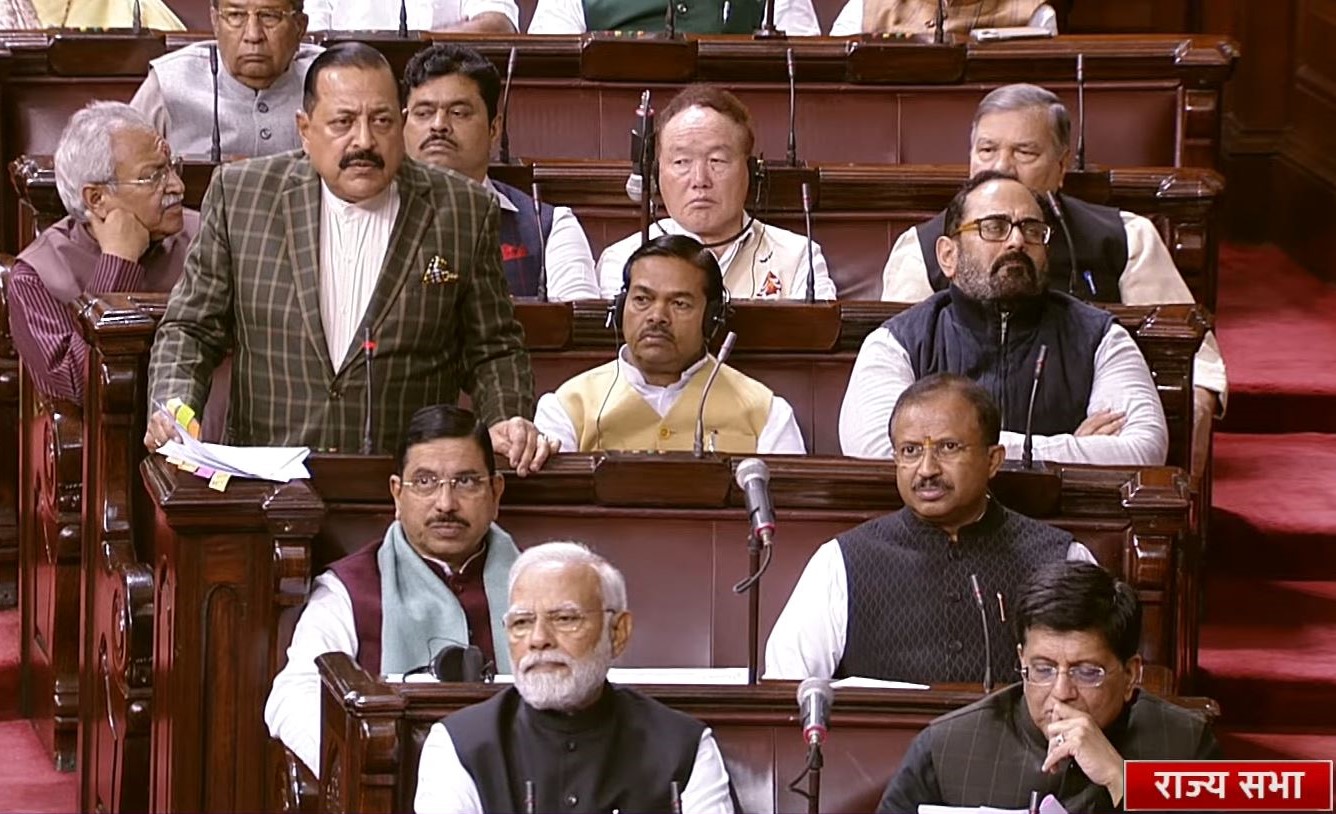NEW DELHI, Feb 9 : India’s Nuclear Power capacity witnessed a quantum jump after 2014, when Narendra Modi took over as the Prime Minister. Going by the exact figures, in the year 2013-14 if the annual nuclear power generation stood at 35,333 Million Units, in the latest year of 2021-22 it stands at 47,112 Million Units which is nearly 30 to 40 percent increase within a short span of over eight and a half years.
This was stated here today in the Rajya Sabha by Union Minister of State (Independent Charge) Science & Technology; Minister of State (Independent Charge) Earth Sciences; MoS PMO, Personnel, Public Grievances, Pensions, Atomic Energy and Space, during a discussion in the Rajya Sabha on nuclear power reactors.
The Minister cited a number of path-breaking out-of-the-box decisions taken by Prime Minister Narendra Modi to supplement the rise of nuclear power generation in India. For example, he said, if there were only 22 reactors in the country before this government came in, the cabinet headed by Prime Minister Modi gave simultaneous bulk approval for as many as 11 indigenous pressurised heavy water reactors in 2017 at a total cost of Rs.1,05,000 crore and total capacity of 7,000 Mega Watts.
Not only this, Dr Jitendra Singh said, in another revolutionary decision as was done in the case of the Space Department which was unlocked for private players, Prime Minister Narendra Modi also allowed Joint Ventures with Public Sector Undertakings (PSUs) to augment India’s nuclear programme. Following a decision to this effect in 2015, the Nuclear Power Corporation of India Limited(NPCIL) is presently in two joint ventures one with National Thermal Power Corporation Limited (NTPC) and the other with Indian Oil Corporation Limited (IOCL).
Moreover, Dr Jitendra Singh informed that while in the past India’s nuclear installations were mostly confined to South Indian States or in the west in Maharashtra and Gujarat, the Modi government is also promoting its expansion to other parts of the country. In this context, he cited the example of the upcoming nuclear power plant in Gorakhpur town of Haryana which will become functional in near future.
In reply to another question, Dr Jitendra Singh noted with pride that the world’s first thorium based nuclear plant “Bhavni” using Uranium-233 is being set up at Kalpakkam in Tamil Nadu. It is going to be entirely indigenous and the first-of-its-kind, he said. The experimental thorium plant “Kamini” already exists in Kalpakkam, he added.


